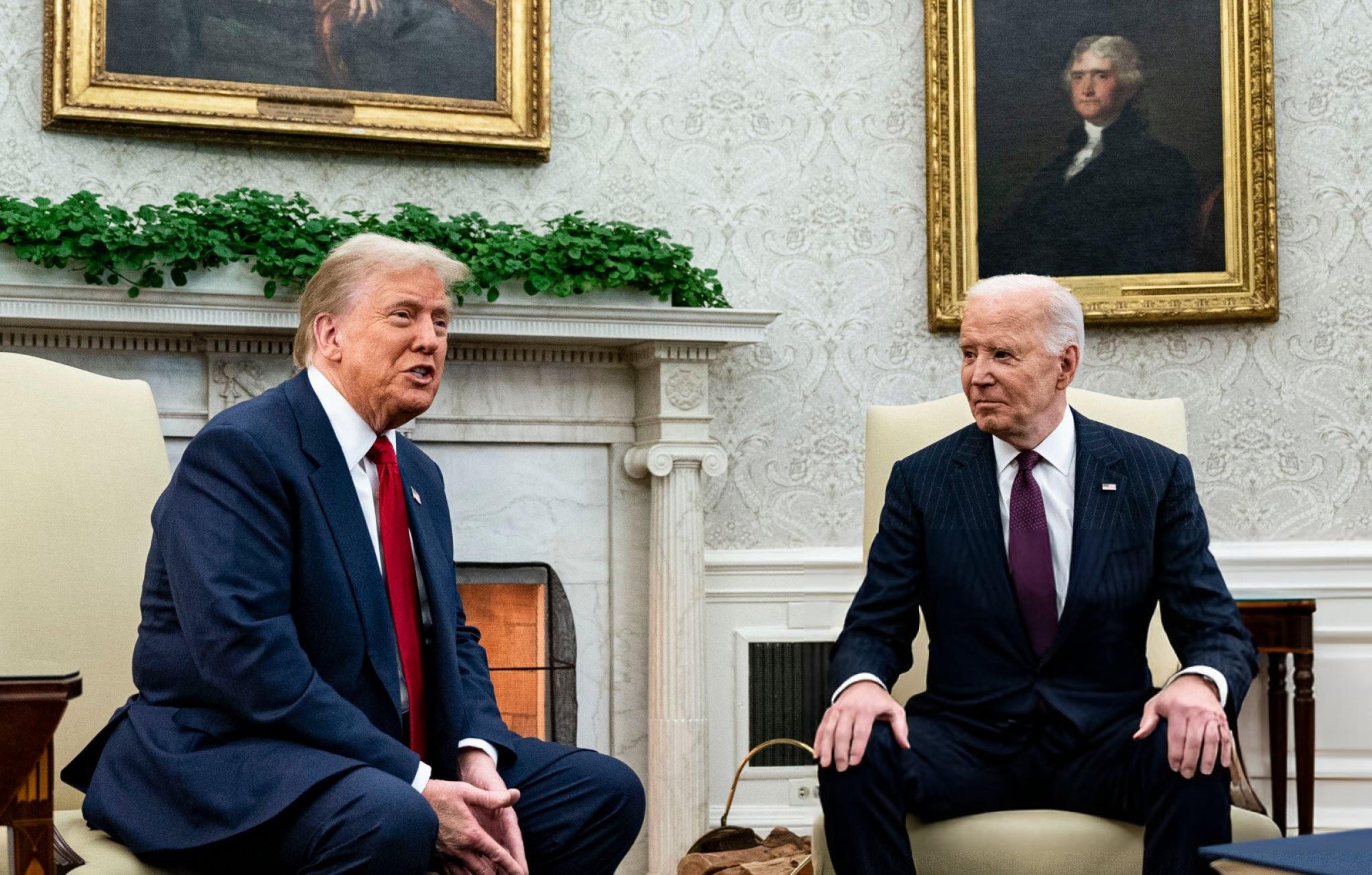As the political landscape shifts heading into 2025, NPR’s Tamara Keith and Amy Walter of the Cook Political Report offer insights into the state of American politics. A significant focus is on President Biden’s legacy and the possibility of Donald Trump securing a second term, which could heavily influence how Biden’s presidency is remembered.
Tamara Keith starts the discussion by drawing a comparison between the former and current presidents. She highlights the long tenure of former President Jimmy Carter, who, despite being a one-term president, was able to redefine his legacy in his post-presidency years. “President Carter really gave himself a new legacy, a second legacy; 40 years is an incredibly long time,” Keith says, reflecting on Carter’s life after the White House. She continues, noting that Biden’s time in office is not likely to span the same length.
Biden’s presidency, Keith argues, may ultimately be defined less by his actions while in office and more by the way his time in office concludes. Biden’s initial run for president in 2019 was driven by the desire to make Donald Trump a one-term president. However, with Trump now positioning himself for a possible second term, Keith suggests that Biden’s legacy may become increasingly intertwined with Trump’s political future.
“The perception of Biden’s legacy might be shaped by the idea that he was the one who defeated Trump, but also the one who, perhaps unintentionally, allowed Trump to return,” Keith adds, quoting a presidential historian who likens Biden’s role to that of a “dragon slayer” who later “let the dragon back in.”
Amy Walter offers a broader perspective on presidential legacies, comparing Biden’s presidency to that of Carter, who faced challenges like inflation that ultimately affected his tenure. Walter notes that while Carter was an outsider, Biden’s identity is deeply rooted in Washington, D.C. “Biden will be remembered for being the consummate insider whose life was defined by Washington,” Walter says, contrasting Biden with the outsider status that Carter embraced.
The discussion then turns to the future of the Republican Party, with both Keith and Walter noting that Trump’s potential second term could be complicated by internal party dynamics. Keith touches on the ongoing struggles within the Republican Party, particularly regarding the leadership of House Speaker Kevin McCarthy, who has faced significant challenges from within his own ranks. Keith explains that Trump’s influence within the party will be tested, as his ability to secure unity among Republicans will be crucial for advancing his agenda. “Trump has every reason to not want a leadership battle right now,” she observes, emphasising the importance of avoiding distractions that could weaken the party’s ability to govern effectively.
Walter echoes this sentiment, pointing out the push and pull that Trump faces as he navigates the complexities of governance. Trump has always thrived on being a disruptor, but his second term may demand a more balanced approach if he hopes to achieve significant political outcomes. “Does he want to be a disrupter, or does he want to be a doer?” Walter asks, noting that Trump’s leadership style could face friction if party divisions persist.
As for Biden, Walter acknowledges that his legacy is still a work in progress. While Biden’s presidency may not be shaped by monumental achievements, his role in managing the nation’s crises, including the COVID-19 pandemic, will certainly play a part in how history judges his time in office. However, with the political terrain shifting dramatically in 2025, much of Biden’s legacy will depend on the course of the 2024 election and the aftermath of a potential second Trump presidency.
In a surprising turn of events, Keith points out that Trump’s performance in recent elections has exceeded expectations, despite predictions that he would hit a ceiling in terms of voter support. She highlights how inflation and a general desire for change among American voters contributed to Trump’s success. Additionally, Keith recalls the unexpected performance of President Biden in a recent debate, which left many voters questioning whether Biden could effectively navigate the challenges of his re-election campaign.
Walter agrees that the margins in the upcoming election will be crucial. “Control of the House came down to about 7,000 votes split across the three most competitive races,” she says, underscoring how narrow victories can have significant consequences in the current political climate. The same is true in the presidential race, where Trump won thanks to slim victories in key battleground states.
As both analysts reflect on the political landscape, they agree that America is entering a period where the smallest shifts in voter sentiment could define the outcome of the 2024 election and beyond. In this era of narrow victories and constant political turbulence, the ultimate question remains: Will Biden’s legacy be shaped by his achievements, or will it be defined by how he handled Trump’s return to power?
In conclusion, the political future of the United States is poised to be influenced heavily by the trajectory of both Biden’s presidency and Trump’s potential second term. The next few years will undoubtedly be crucial in determining not just the fates of these two men, but the future of American democracy itself.







